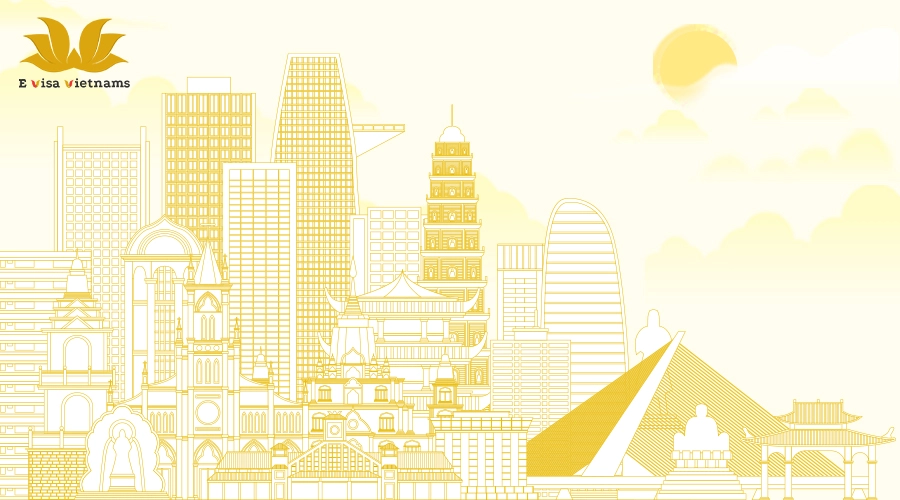vietnam wildlife tours 2026 | best national parks & eco-travel guide
 Priyanshu Raghav
Priyanshu Raghav

Vietnam is a true paradise for nature and wildlife lovers. Despite the scars of war, the country has rejuvenated its landscapes and built a strong conservation network with over 31 national parks and numerous protected areas. These parks showcase Vietnam’s rich biodiversity — from misty highlands to tropical rainforests, limestone caves, and mangrove deltas — offering unforgettable experiences for eco-travelers and adventure enthusiasts alike.
If you are planning a wildlife or eco-adventure trip in Vietnam, this guide covers everything you need to know — the best parks, regional highlights, ethical travel tips, and how to apply for your Vietnam eVisa conveniently.
Why Vietnam Is a Wildlife Lover’s Paradise
Vietnam’s geographical diversity — stretching over 3,000 kilometers from north to south — provides habitats for thousands of species of flora and fauna. From rare primates like the red-shanked douc langur to ancient karst caves and vibrant coral reefs, every corner of Vietnam tells a story of natural wonder.
Over the past two decades, Vietnam’s government and NGOs have increased conservation efforts and eco-tourism initiatives. Many parks are now UNESCO-listed, promoting both preservation and sustainable exploration.
Top National Parks and Wildlife Destinations in Vietnam
Below are some of the most scenic and biologically rich parks in Vietnam, each with its unique ecosystem and attractions.
Cuc Phuong National Park
Established in 1962 as Vietnam’s first national park, Cuc Phuong is a lush rainforest filled with ancient trees, butterflies, and rare wildlife. The Endangered Primate Rescue Center here rehabilitates gibbons and langurs. Located about 130 km south of Hanoi, it’s perfect for trekking, cycling, and learning about Vietnam’s natural heritage.
Phong Nha-Ke Bang National Park
A UNESCO World Heritage Site since 2003, this park boasts the largest cave systems in the world, including Son Doong Cave. Visitors can enjoy caving, kayaking, and trekking through jungles. Its stunning limestone karsts and underground rivers make it one of Asia’s most spectacular nature sites.
Ba Be National Park
Nestled in northern Vietnam, Ba Be is famed for its freshwater lakes, waterfalls, and caves. It’s ideal for birdwatching, kayaking, and exploring the surrounding ethnic minority villages.
Cat Tien National Park
Located in southern Vietnam, Cat Tien offers a mix of tropical forests, wetlands, and endangered species. It’s home to elephants, sun bears, and the critically endangered Siamese crocodile. Jungle trekking and night safaris are top experiences here.
Bach Ma National Park
In central Vietnam, Bach Ma bridges the ocean and highlands, offering waterfalls, forest trails, and panoramic viewpoints. It’s a haven for birdwatchers and hikers looking for cooler mountain air.
Can Gio Mangrove Forest
A UNESCO Biosphere Reserve near Ho Chi Minh City, Can Gio features vast mangrove forests and playful monkeys on Monkey Island. Boat tours through the waterways reveal an incredible diversity of aquatic and bird life.
Regional Wildlife Experiences Across Vietnam
Northern Vietnam: Mountain Treks & Forest Adventures
The north’s diverse climate supports lush forests and temperate wildlife. Visitors can trek Fansipan Peak in Hoang Lien National Park, explore Ninh Binh’s caves, or visit Cuc Phuong for its biodiversity trails.
Central Vietnam: Coastal Biodiversity & Cave Expeditions
This region offers both mountains and sea. Join eco-tours in Hoi An to observe rare bird species, or capture photos of the Da Nang red-shanked douc langur. Phong Nha-Ke Bang is a must-visit for cave explorers and adventure seekers.
Southern Vietnam: Wetlands, Deltas & Endangered Species
From the Mekong Delta to the Ca Mau Mangrove Forest, southern Vietnam’s wetlands teem with life. Canoe through the Can Gio swamps or camp in Nam Cat Tien National Park to spot exotic species and migratory birds.
Ethical Wildlife Tourism in Vietnam
Balancing Conservation and Tourism
While tourism supports conservation financially, it can also disrupt local ecosystems if not managed responsibly. Some tours unintentionally harm habitats or exploit animals for profit. Always choose eco-certified operators that prioritize sustainability and community welfare.
Responsible Travel Practices
-
Avoid tours that allow direct contact with wild animals.
-
Support local conservation organizations.
-
Do not purchase souvenirs made from wildlife or plants.
-
Limit waste and use eco-friendly products.
-
Stay in lodges or homestays committed to sustainability.
How to Apply for a Vietnam eVisa for Wildlife Tours
Step-by-Step Vietnam eVisa Application Process
-
Visit the official Vietnam eVisa portal or use our trusted visa assistance service.
-
Fill out the application form with accurate personal and passport details.
-
Upload your passport’s bio page and a digital photo.
-
Pay the visa fee securely online.
-
Receive your approved Vietnam eVisa via email within 3–4 working days.
Documents Required for Vietnam eVisa
-
A valid passport with at least six months of validity.
-
A recent passport-size photo (digital).
-
An active email address for communication.
-
A debit/credit card for payment.
Tips for a Smooth Application
-
Double-check your travel dates and passport details.
-
Apply at least one week before departure.
-
Print a copy of your eVisa for airport verification.
Why Choose Professional Visa Assistance
Applying for your visa through a professional service like Evisa-Vietnams ensures a seamless experience. Our team verifies your documents, resolves common application errors, and accelerates approval timelines — helping you focus on planning your eco-tour instead of worrying about paperwork.
With our support, you can get your Vietnam eVisa approved within 3–4 working days, safely and reliably.
Conclusion
Vietnam’s wildlife and eco-tourism scene is one of Southeast Asia’s most rewarding travel experiences. From ancient rainforests to mysterious caves and vibrant deltas, the country’s biodiversity is breathtaking.
However, ethical travel is key to preserving these wonders for future generations. By choosing responsible tours and applying for your Vietnam eVisa through trusted experts, you can explore Vietnam’s national parks confidently and sustainably.
Apply now for your Vietnam eVisa and get ready to experience the wild heart of Vietnam!
WRITE YOUR COMMENT
Your email address will not be published. Required fields are marked *